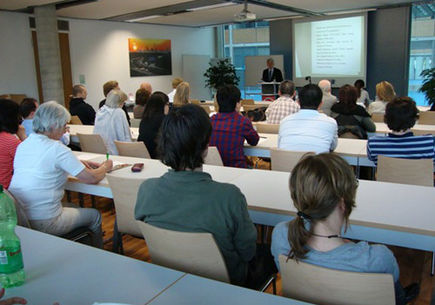To try and save you from similar embarrassment when using English for business, we have put together our top 5 possible gaffs to spare you executive blushing. The spirit of this is to prevent you from making the same mistakes, but also to celebrate just how damn funny it can be teaching English as a foreign language. Whilst we always employ the utmost professional respect for our clients and never want them to feel offended or humiliated, we feel it is a healthy and positive approach to their learning to laugh sometimes, as long as we take care to share the joke with them! We must also retain humility that they are so capable of speaking our own quirky language whilst we would struggle to start to learn theirs. So let’s dispute about the 5 Biggest Business English Mistakes:
Well, no. Actually, it’s not the same. THAT’s the problem. Spanish and Italian speakers have an expression that means: „I don’t mind” but translates directly as „for me, it is the same”. Whilst this causes more confusion rather than shame, to a native English speaker it means „it is identical”. It’s an easy one to remember but a hard one to stop using once you start.
2. The English kitchen!
I wish I had a pound (or even a Euro) for every time a German client has asked: „So Peter, how is your kitchen?” At first I was rather flattered, but then perplexed as I asked myself how they knew that I had recently spent a whole week re-fitting my kitchen units, cooker and sink. Did I still have tile grout or paint in my hair? But, no. Again we were victims of a direct translation with the Germans having the same word for cooking or cuisine and the very room they do this in; kitchen.
British cooking has improved so much over the last 15 years. However, I don’t think there is any foreigner who travels to the UK with the sole objective of sampling the food! Unsurprising then that we don’t have an English equivalent to „Bon appétit”, in fact, for all our national pride, we would naturally use this French expression when wishing our fellow diners well before eating. „Enjoy your meal” is usually only used by the waiter or waitress…
Well, of course they are not, except when they are recapping recent Anglo-German international football history. However, one important thing must be noted here. The German language does not trouble itself with all the complicated structures that the English use to try and be 100% „polite” 24 / 7. So whilst an English person may be thinking: „How long is this big idiot going to be standing blocking the door? For God’s sake!” he is more likely to carefully say:
„I’m terribly sorry, but would you possibly mind moving aside for a moment? I’m afraid that I need to come through”.
As a consequence, especially with a lower level learner, this might come out simply as: „Move please.” When each word is said with falling intonation, the native speaking listener will react at a gut or emotional level. So Germans! Just do some work on appropriate sentence stress and intonation patterns and you will able to avoid upsetting the over sensitive English.
You might have heard native speaking colleagues using some interesting sounding words or expressions in anger or frustration in similar social or professional situations, but experience tells me that you should never be tempted to adopt these in to your active repertoire. It is very difficult to judge, even in your own native language, how far you can go when using taboo or strong language with colleagues, business acquaintances, clients or guests. I have seen previously popular and well respected business people, immediately lose credibility and even offend when experimenting with authentically colourful „real” English. If it’s appropriate, let the other guy kick it off, and even then I would proceed with extreme caution.
It’s hard to monitor exactly the impression that you are making when speaking a foreign language. If in doubt, ask yourself: „How would my mother react if I said this out loud at a family function”. I find it focuses the mind! If this doesn’t get you thinking, spare a thought for the visiting Japanese executive who greeted the UK CEO of his key corporate customer with a confidently delivered:
„Your wife. She bloody lovely”…
So the message is clear, just knowing about these classic mistakes can help you to avoid making such errors. However, by committing such blunders you will almost certainly harm your credibility in front of those you are really trying to impress.







